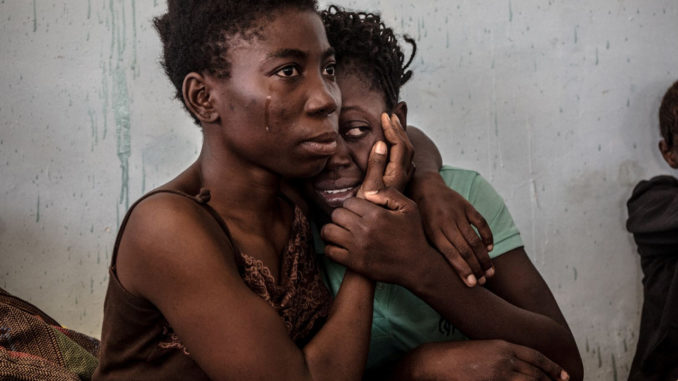
The United Nations on Monday criticised Nigeria for failing to tackle human trafficking, after a human rights mission looked at efforts to stamp out the organised trade in people.
“What is being done is not enough,” the world body’s special rapporteur on the subject, Maria Grazia Giammarinaro, told reporters at the end of an eight-day visit.
Some 18,000 Nigerians arrived in Italy via the Mediterranean Sea from north Africa in 2017, according to the International Organization for Migration (IOM).
The number of arrivals in Europe fell sharply in the first six months of this year but Giammarinaro said there was “no indication of a decrease in the trafficking trend”.
“Some are already recruited by their traffickers in the country of origin, others may start their migration journey voluntarily,” she told a news conference in Abuja.
“Due also to the absence of safe and regular migration channels, the vast majority of them fall prey to traffickers in transit countries, especially in Libya, and (are) subject to all forms of human rights violations including torture, rape, extortion, and exploitation amounting to trafficking, slavery and forced labour.”
According to the latest IOM figures, some 36,000 Nigerians were stuck in Libya or neighbouring Niger in December last year.
Nigeria’s own immigration service has estimated that about 10,000 nationals died in the Sahara desert or in the Mediterranean Sea between January and May last year.
Giammarinaro noted that human trafficking in Nigeria was not always north towards Europe but also to the Gulf, Russia and southern Africa “mainly for the purposes of sexual and labour exploitation”.
The West African nation is equally an immigration destination for neighbouring countries.
Nigeria has its own anti-trafficking agency but Giammarinaro said there was an overall “lack of resources, training and equipment for the various public offices involved in the fight against trafficking”.
“Nigeria is… Africa’s largest oil producer and ranks sixth in the world, with 2.5 million barrels of oil produced every day.
“Yet… 64 percent of Nigerians live below the poverty line and trafficking in persons continues unabated.
“With the wealth and political leverage it has been generating, the government of Nigeria cannot be seen to leave its people behind.”
Giammarinaro recommended that more work needed to be done to prevent people leaving in the first place and also to bring those responsible to justice.
A total of 362 traffickers have been convicted and sentenced since 2004 yet the number of victims and complaints received has skyrocketed to 13,186.
“But there is no estimate about the real dimension of trafficking in this country,” she added.
END

Be the first to comment